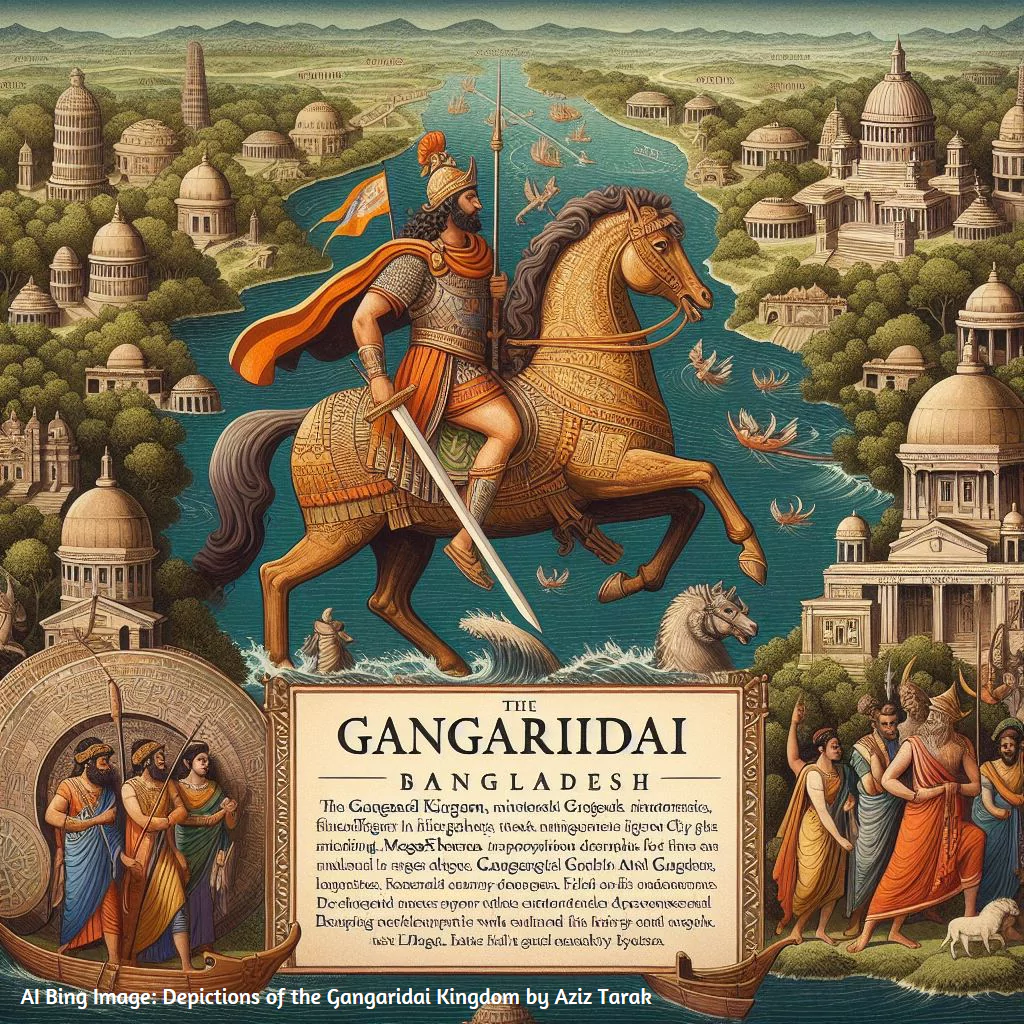Editorials
Ancient History of Bangladesh: Gangaridai to Dhaka

Bangladesh has a rich historical tapestry, with a significant chapter dating back to ancient times as part of the Ganges delta civilization. The region has seen the rise and fall of various empires and dynasties, including the Maurya and Gupta Empires. During the medieval period, Bengal became a prominent centre for trade and commerce.
From ancient times, Bengal stood as the vibrant and strategic center of the South Asia. The Ganges delta, with its fertile plains, hosted a flourishing civilization that played a pivotal role in the region’s history. Among the notable civilizations was the powerful Gangaridai kingdom, a historical entity that occupied the deltaic region, which is present-day Bangladesh.
The Gangaridai kingdom, mentioned by ancient Greek historians, including Megasthenes, thrived in the vast Ganges delta. Known for its military might and strategic significance, Gangaridai was a formidable kingdom that controlled key trade routes and waterways. The capital, possibly located near present-day Dhaka, was a center of commerce and culture.
Bengal’s geographical position, with the Ganges and Brahmaputra rivers flowing through its delta, contributed to its unconquerable nature by foreign powers for much of its early history. The abundant resources and strategic location made it a sought-after region in the ancient subcontinent.
However, the course of history shifted with the British conquest of Bengal in 1757, specifically during the Battle of Plassey. This event marked the beginning of foreign rule in Bengal, ending the era of indigenous powers governing the region. The British East India Company’s ascendancy in Bengal initiated a new chapter in the region’s history, bringing about significant changes in governance, economy, and societal structures.
Despite the subsequent foreign domination, Bengal’s glorious history as the center of the Ganges delta civilization and the formidable Gangaridai kingdom remains integral to the cultural and historical identity of present-day Bangladesh. The echoes of this rich heritage persist in the traditions, arts, and resilience of the Bangladeshi people, showcasing the enduring legacy of a region that has played a vital role in shaping the narrative of the Indian subcontinent.
The Mughal Empire exerted its influence in the 16th century, leading to the establishment of Dhaka as a regional capital. However, British colonization in the 19th century marked a transformative period, as Bengal became part of British India. The struggle for independence culminated in the Partition of British India in 1947, leading to the creation of East Pakistan.
In 1971, following a war of independence, Bangladesh emerged as a sovereign nation. Since then, the country has experienced both economic growth and social development, grappling with challenges such as political instability, natural disasters, and issues related to poverty and infrastructure.
Ganges Delta Civilization: The Ganges delta, where Bangladesh is situated, has been a cradle of civilization for centuries. The region has witnessed the flourishing of ancient cultures and trade, with the Ganges and Brahmaputra rivers shaping the fertile plains. Archaeological sites like Mahasthangarh and Wari-Bateshwar provide glimpses into the ancient civilizations that thrived in this deltaic region.
Economy: Bangladesh has experienced significant economic growth in recent years, particularly in sectors like textiles and garments. The country’s economy is driven by agriculture, industry, and services. Dhaka, the capital, has emerged as a key economic and cultural hub in the region
Bangladesh is a Bengali nation-state in South Asia with a Muslim-majority Population. Bangladesh is the eighth most populous country in the world with a considerably small landmass, it is the 94th largest country among 234 independent states or territories. Bangladesh is the second largest economy in South Asia and it maintains the third largest military in the region and is a major contributor to the United Nations peacekeeping force.
From ancient times Bengal was the centre of the Indian subcontinent. for its strategic Jo political position and 10, it was mostly unconquerable by the foreign powers before the British conquest of Bengal. In the battle of policy in 1757, the British conquest of Bengal began the foreign rule of Bengal by different powers.